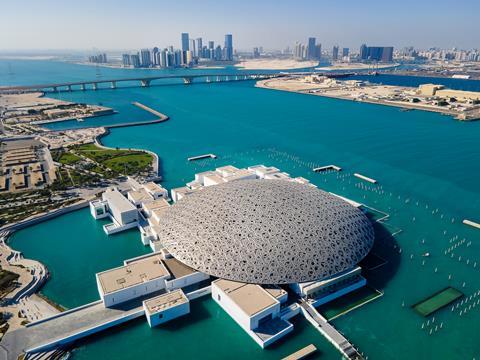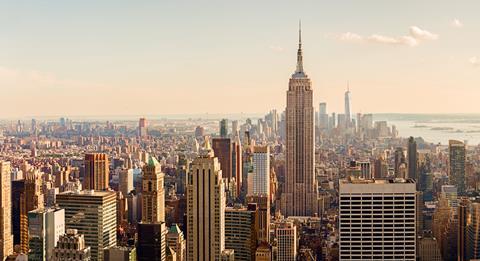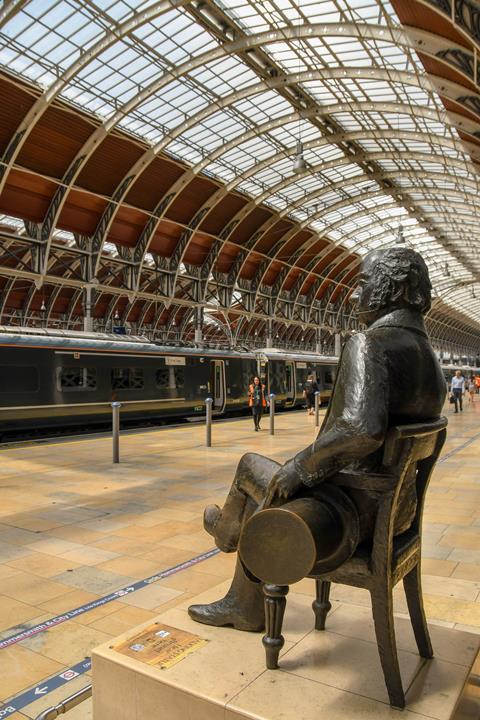The firm’s new CEO says he finds his job exhilarating and terrifying in equal measure. He has a problem with waste but can’t drink too much tea
![LR Oliver Plunkett_171022_© Buro Happold_003[99] copy](https://d3sux4fmh2nu8u.cloudfront.net/Pictures/480xany/0/6/5/1940065_lroliverplunkett_171022_burohappold_00399copy_867730.jpg)
Why did you choose construction as a career?
I caught the building bug at an early age. My grandfather was a housebuilder and took me out on site as a child (carefully!). This sparked my passion for how buildings go together, change people’s lives and shape how we interact with each other.
What are you most proud of in your career to date?
The Royal Alexandra Children’s Hospital in Brighton. The worthy cause and interacting with the children at the hospital’s opening has stuck with me. The project involved clever engineering, architecture and construction that gave every room natural light on a very tight site. The required area fitted on the site – just! But it would have meant many rooms without windows. So we shaped the building like an ark, creating the space needed for a central atrium and, hey presto, light everywhere! It’s important to credit Benedict Zucchi at BDP for that vision.
What has been the biggest challenge of your career to date?
As a project, the British Embassy in Harare. We were building it while the economy and the country generally descended around us. Incredible creativity and commitment of the whole team somehow got it built.
As a role, the CEO of Buro Happold – the job I have just started. It’s a tremendous honour, responsibility and challenge all in one. Enabling the next generation of complex problem solvers is a big gig and there are a lot of problems in the world that need solutions.
If you could change one thing about the industry, what would it be?
Waste! We are making incredible progress with technology and climate change – but it’s very patchy. Climate commitments would be a lot easier if we could tackle waste.

What is the most helpful advice that you have been given?
Employ people better than you.
Name your favourite building in the world?
The Louvre, Abu Dhabi (but perhaps I would say that!). There are lots of other buildings that I admire. The British Library Great Court is another – these are “places for people”. What makes them a success is watching how people use them and how it enriches their lives. What makes buildings special is the interaction between people and place.
I was at the Museum of the Future in Dubai recently and was particularly struck by the way people were “hanging out” in and around the building. There aren’t many places like that in Dubai, so it’s quite special.
Which famous building do you most dislike?
22 Bishopsgate – a blatant GFA (floor area) “grab”.

Which famous building do you wish you had worked on?
The Empire State Building. It was an epochal shift in what could be achieved. I would have said St Pauls Cathedral for the same reason, but I don’t think I would have lived long enough to see it finished!
What one piece of advice would you give to someone starting out in your profession?
Be confident in not knowing the answer. Some of the best solutions come from embracing uncertainty.
Who do you most admire in the construction industry?
Brunel (assuming I am allowed a dead person). Talk about embracing uncertainty! Imagine setting out on horseback to survey – with no LIDAR data or drone – for a new railway line between London and Bristol… that is an as yet unproven means of transport. Then, negotiate with landowners, raise the capital and design the iconic and elegant elements of the line such as the Box Tunnel and the brick-arch Maidenhead Thames crossing.
Ok, so Brunel got the gauge wrong initially (and there’s another great story in the overnight switch over) but I find that all very inspiring. And he didn’t just do railways!

What is it like being you (and doing your job)?
Rewarding, exhilarating, unpredictable and utterly terrifying – frequently all in one day! It all keeps me focused.
Do you have a life philosophy?
Don’t look back except to learn.
What do you think your best quality is?
Instinct and judgment – both technical and personality.
What trait do you most dislike in yourself? And in other people?
Perfectionism (me). Not listening (others). And I don’t mean choosing not to listen – that’s different. Active listening is a skill that needs to be learnt and practised. I am an avid written note taker and that helps me to focus on what is being said and to stay in the moment.
Name three things that you like
Mountains, cricket and Blackadder (honestly, Darling).
Tell us about a secret skill that we don’t know you have
My baritone singing voice.
What is your most prized possession?
Time.
Early bird or night owl?
An annoying mixture of both.
What is your favourite food?
Tea (Barry’s Red Label) – and bucket loads of it.
What would your superpower be?
Time travel.



























No comments yet